1. The Winters Are Brutal
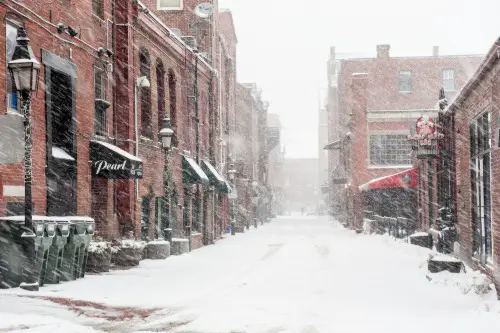
If you think you know cold, think again. Maine’s winters are no joke, with temperatures regularly dipping into the single digits or even below zero for weeks at a time. Snowstorms are frequent and can leave you with several feet of snow to shovel before you can even think about leaving your driveway. In fact, just last year, thousands of people were left without power, according to Forbes. The wind chill is no joke either—it can make an already freezing day feel downright unbearable. Heating costs are a significant expense in Maine, with oil, propane, or wood often required to keep homes warm during the long, harsh winter. If you’re not used to waking up early to scrape ice off your windshield or navigating slippery roads every day, winter in Maine might be a rude awakening.
But it’s not just the physical cold that gets to people—the dark, dreary months can feel never-ending. By late November, the sun starts setting before 4 p.m., and many Mainers experience Seasonal Affective Disorder (SAD) due to the lack of daylight. You might find yourself feeling cooped up and restless, as the cold often makes outdoor activities a chore rather than a pleasure. Sure, some people thrive in this environment and embrace skiing, snowshoeing, or ice fishing, but if that’s not your idea of fun, you’ll likely find yourself counting down the days until spring—only to discover that mud season is waiting for you next.
2. The Tourist Crowds
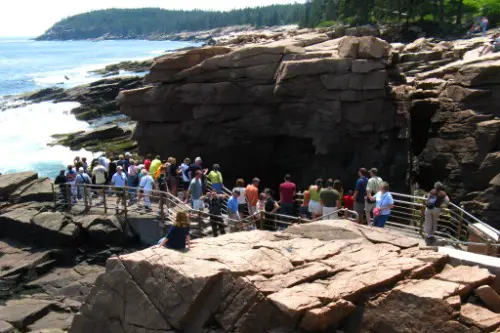
Maine’s picturesque coastline and natural beauty draw tourists by the thousands every year, and while that can be great for the local economy, it can also create some headaches for residents. In the summer, the state’s population swells with visitors flocking to Bar Harbor, Acadia National Park, and the stunning coastal towns. Roads become congested, restaurants get crowded, and local attractions are often overwhelmed. The Portland Press Herald is already warning about “overtourism.”
Living in a state where much of the population is seasonal can feel frustrating for those who prefer the peace and quiet of a small town. It’s not uncommon for locals to find themselves waiting in long lines or dealing with overcrowded spaces when trying to enjoy their favorite spots. If you’re the type of person who hates waiting for a table or dislikes being around large groups of tourists, you might find Maine’s seasonal crowds annoying, especially during the summer months.
3. Limited Healthcare Options in Rural Areas

While Maine has a number of excellent hospitals and healthcare facilities, many of them are concentrated in the larger cities, leaving rural areas with fewer options for medical care, the Portland Press Herald explains. Small towns may have basic clinics, but more specialized care often requires a long drive, sometimes hours away. In case of emergencies, the rural setting can be particularly problematic, with some areas being difficult to access during the winter months due to snow and ice.
Additionally, there is a shortage of healthcare professionals in rural areas, which means that many residents face long wait times for appointments. If you’re someone who values quick access to doctors, specialists, and even basic services like physical therapy or dental care, the limited options in rural Maine could be a significant downside.
4. The Rural Isolation
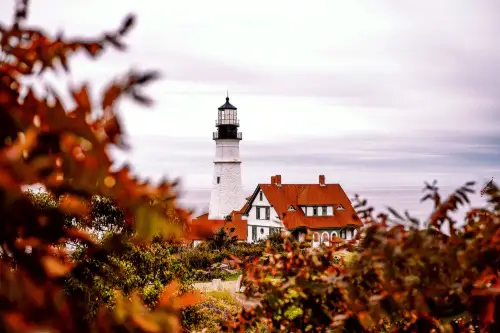
Maine is one of the most rural states in America, and while that appeals to some, it can be a dealbreaker for others. The state is sparsely populated, with miles of forest, farmland, and coastline separating many communities. In some towns, the population barely reaches triple digits, and even larger towns may lack the amenities and services you’d expect. Grocery stores, gas stations, and healthcare facilities are often spread out, meaning you might have to drive an hour or more for basic necessities. Dr. Vivek Murthy warns that isolation can be as harmful as smoking.
Social life in Maine can also feel limited, especially if you’re used to the hustle and bustle of city living. Entertainment options like concerts, theaters, and trendy restaurants are mostly concentrated in Portland or Bangor, leaving rural residents with fewer ways to unwind. If you’re not comfortable with long periods of quiet, limited social opportunities, or the need to drive significant distances for everything from dining out to seeing friends, Maine’s rural charm might start to feel like a drawback.
5. The High Cost of Living in Certain Areas
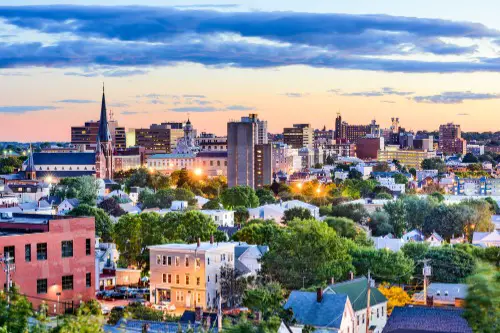
While Maine has a reputation for being affordable, that’s not entirely accurate, especially in popular areas like Portland or along the coast. The housing market has surged in recent years, with many out-of-state buyers driving up prices. Renting isn’t necessarily a better deal either, as competition for apartments is fierce, and monthly rents in desirable areas can rival those in larger cities. This can be especially frustrating if you’re earning Maine’s average wages, which are often lower than the national median. This impacts mostly young people, according to the Portland Press Herald, who can’t afford a good quality of life in the state.
Living costs don’t stop with housing, either. Utilities can be expensive, particularly during the winter when heating bills can skyrocket. Groceries and everyday goods also tend to cost more, especially in rural areas where there’s less competition among retailers. If you’re moving to Maine with the expectation of an inexpensive lifestyle, the reality of balancing higher costs with limited income opportunities might come as an unpleasant surprise.
6. The Lack of Diversity
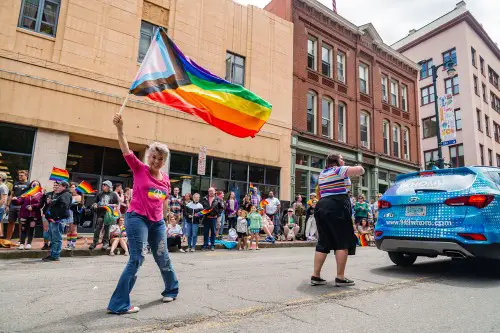
If you’re someone who thrives in diverse, multicultural environments, Maine may not be the place for you. The state has one of the lowest rates of racial and ethnic diversity in the U.S. While there are certainly communities of immigrants and people of color in larger cities like Portland and Lewiston, the majority of Mainers are white, and many small towns are not accustomed to cultural or racial diversity.
This lack of diversity can feel stifling for those who come from more cosmopolitan places. You might find it harder to connect with people who share your background or experiences, and there’s a possibility that you’ll encounter some outdated or even discriminatory attitudes. If you value cultural vibrancy, diverse food scenes, and being around people from all walks of life, you might find Maine’s homogeneity to be a bit isolating.
7. Poor Public Transportation

Public transportation in Maine is, at best, limited. Unless you’re living in Portland, your options for getting around without a car are essentially nonexistent. The state’s sparse population and vast rural expanses mean that bus systems are few and far between, and they often don’t operate on a schedule that accommodates commuters or people with busy lifestyles. In smaller towns, the idea of a bus service might be laughable—most people are forced to drive, even for short trips.
If you’re considering moving to Maine without a car, or if you just don’t like the idea of being dependent on one for daily life, this could be a serious inconvenience. Even larger cities, like Portland, don’t have the kind of robust, affordable public transit systems that many other urban areas offer. Walking or biking isn’t always a viable alternative, either, especially during Maine’s harsh winters. For many, a car is not just a convenience but a necessity.
8. The Limited Dining and Entertainment Scene

For foodies and entertainment lovers, Maine can be a bit underwhelming. While the state is known for its lobster rolls, craft beer, and farm-to-table restaurants, it lacks the kind of diverse and innovative dining options found in more metropolitan areas. If you love exploring different cuisines or crave a variety of dining experiences, you may find Maine’s food scene to be somewhat narrow and repetitive.
Similarly, entertainment options are limited in many parts of the state. Outside of Portland, finding a vibrant nightlife scene or a variety of cultural events can be challenging. While you can find some regional theater, local music acts, and occasional festivals, the pace of life in Maine is generally quieter. If you enjoy city living with access to art galleries, theaters, nightclubs, and a mix of cultural events, Maine may feel like it’s lacking in comparison.
9. Limited Job Opportunities
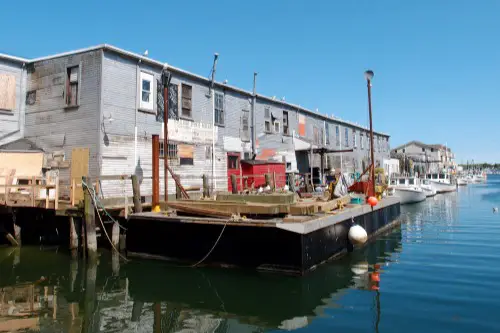
Unless you’re planning to bring your own job or retire in Maine, employment might be a challenge. The state’s economy is heavily reliant on tourism, fishing, forestry, and agriculture, meaning jobs are often seasonal and don’t always pay well. If you’re in a specialized or high-tech field, you may find it tough to secure a role that aligns with your skills. While healthcare and education are somewhat stable industries here, many other fields—especially those requiring innovation and growth—simply don’t have a foothold.
Portland, Maine’s largest city, does offer a slightly more dynamic job market with opportunities in small businesses, craft industries, and hospitality. However, competition for these positions is fierce, and wages can be lower than in other parts of the country. Rural Maine is even more challenging, with limited employment options that may require long commutes. If career advancement, competitive pay, and a diverse range of opportunities are important to you, Maine might not provide the professional satisfaction you’re seeking.
10. Higher Taxes Than You Might Expect

Many people assume that Maine’s small-town vibe and lack of large urban centers means lower taxes, but that’s not always the case. In fact, the state has relatively high property taxes, and depending on where you live, you could be facing a hefty tax bill. This is particularly true in more desirable areas like the coastal towns or parts of southern Maine, where property values have been rising.
Sales tax and income tax are also higher than the national average. While these taxes help fund public services, such as education and transportation, they can add up quickly if you’re not used to paying them. If you’re considering moving from a state with lower taxes, be prepared for a slight financial adjustment.
11. The Wildlife Can Be a Problem
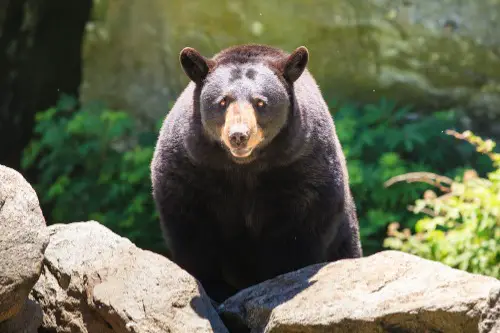
Maine is home to a diverse range of wildlife, including moose, deer, black bears, and various smaller animals. While this is part of the state’s charm for some, it can also pose some real problems. Deer ticks carry Lyme disease, and moose collisions on the road are a real hazard in rural areas. Bears can wander into residential areas in search of food, and it’s not uncommon to have a raccoon or porcupine raid your trash.
If you’re someone who doesn’t want to constantly worry about wildlife interrupting your daily routine, Maine might be less appealing. Living in a state where bears, moose, and other wild creatures are often just around the corner can feel more like living in the wilderness than in a modern home.
12. The Lack of Variety in Seasonal Activities
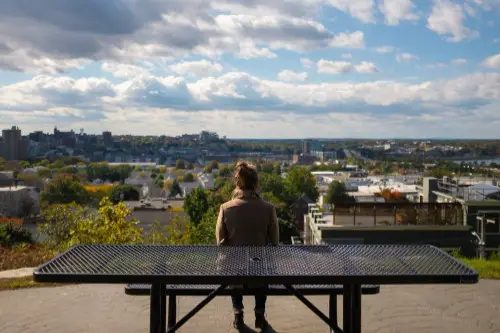
Maine offers a great selection of outdoor activities, but it’s a state that really thrives on four distinct seasons, and each one brings with it certain limitations. In the winter, you’ll have plenty of skiing, snowboarding, and ice fishing to keep you busy, but when the weather warms up, the options can feel a bit more limited, especially if you’re not into hiking or boating. The spring and fall can feel like transitional periods, where outdoor adventures are a bit less thrilling than during the summer or winter months.
If you’re someone who thrives on year-round adventure, Maine may not have enough to keep your adrenaline pumping throughout the entire year. The state’s recreational activities often revolve around its natural landscape, and unless you’re deeply invested in hiking, skiing, or paddling, you might find the seasonal options limiting.


